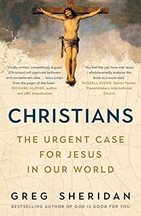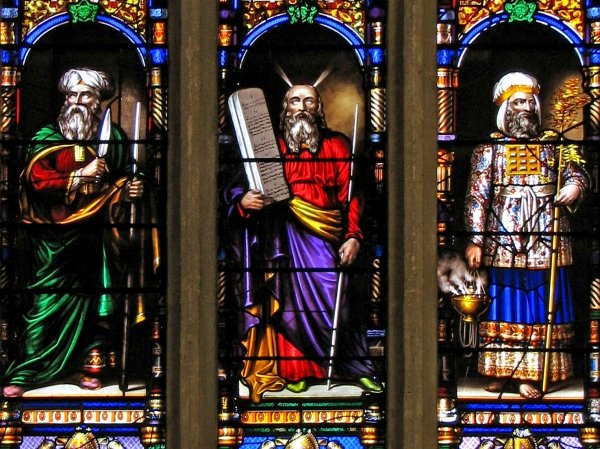Greg Sheridan, Christians: The urgent case for Jesus in our world,
Allen and Unwin, 2021.
From $26. Paperback.
Reviewed by Ted Witham tssf
Greg Sheridan introduces his new book on the people of Christianity with his cheerful description of our faith:
‘On the inside, Christianity is full of feast days and family, full of fellowship, full of friendship. And everyone is welcome, surely never more so than at Christmas. It’s full of care for the sick and elderly, and for infants. It’s full of sport and play, hard work and rest. It’s full of good music and laughter, happy rituals and lots and lots of food (it’s very big on food). It is the principle of human solidarity. It’s the search for decency. It’s a conversation with each other and with God. As John Denver might have put it, in Christianity you routinely speak to God and rejoice at the casual reply.’ (Page 11)
Christians is Greg Sheridan’s second book in defence of Christianity. Sheridan writes of a large Christianity, catholic in the widest way. One of his principal arguments, first advanced in his 2018 God is Good for You, is that it is more reasonable to believe in God than not. The first book was mainly a rejoinder to the new atheists. In it, he took on writers like Richard Dawkins and Christopher Hitchens and showed how much bigger Christianity is than the caricature Dawkins and Hitchens attack.
In this second book, Sheridan tells stories: the stories of Jesus, Mary and the remarkable Paul. Stories of the faith of Scott Morrison, Alpha’s Nicky Gumbel and the Melbourne Anglican founder of Converge, Jenny George. He tells the story of China’s Christians, and the difference they may make to the future of China. In London, he compares the neighbouring churches of Holy Trinity Brompton (HTB) and the Brompton Oratory, where traditional and informal liturgies, high classical church music and Matt Redman’s Gospel songs are all quite different and all nourish believers.
Christians compresses Christianity to its simple heart. For a reader like me, Sheridan sometimes makes Christianity seem too simple. But his purpose is to provide an attractive portrayal of Christianity for those who do not share the faith. In that, Christians reminds me of C.S. Lewis’ Mere Christianity, and Christians is a more entertaining read than Lewis.
Greg Sheridan’ s writing is compelling and accessible. He works as foreign editor for the Australian newspaper. In Christians, he is open about his political stance (he describes himself as centre-right). In a throwaway line, he suggests that Christians are likely to be centre-right or centre-left in their politics. Extremes are likely to lack love.
Christians is endorsed by well-known journalists and by church leaders as diverse as Russell Evans from Planetshakers International, Peter Comensoli, Catholic Archbishop of Melbourne and Pastor Samuel Rodriguez, President of the US National Hispanic Christian Leadership Conference.
It is a book that can be shared both with non-Christians and Christians alike. Those unfamiliar with our faith will find an attractive picture of how Christian faith is lived, and Christians will be encouraged that such a positive book will speak to such a challenging time.
[This review first published in Anglican Messenger, Perth, September 2021)


